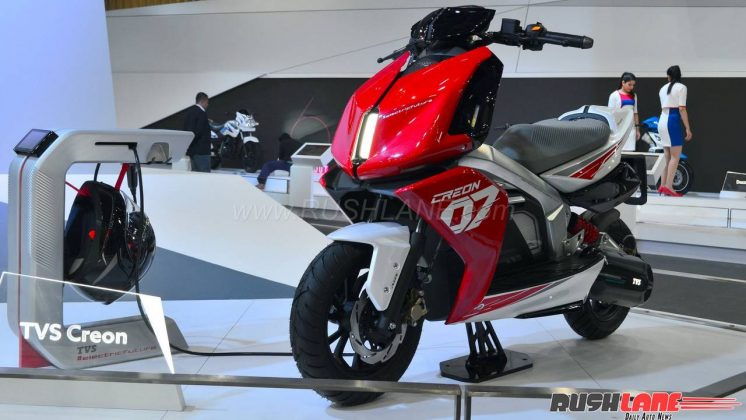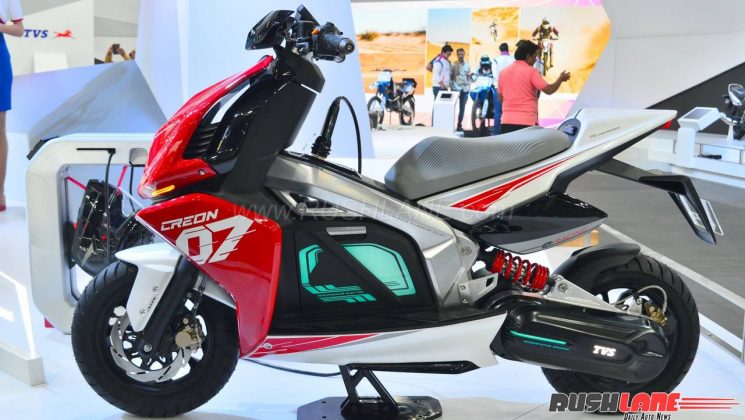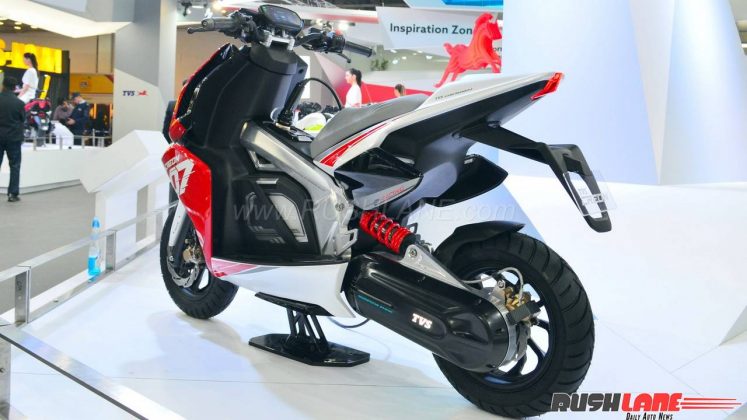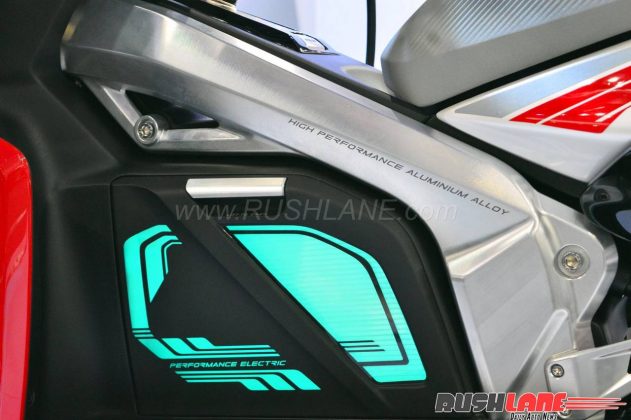
TVS Motor Company’s first attempt at electric scooter (the Scooty Teenz in 2008) came a bit too early for the market but with the ecosystem far more favorable now, the two wheeler giant is getting ready join the action again. A pair of heavily disguised prototypes of a scooter was recently spotted testing near TVS’ Hosur plant and as per the witness, the vehicles had the quintessential electric motor whine.
This is probably the first spotting of the upcoming TVS electric scooter which is set to be revealed by the end of this fiscal (by March 2020). Though the prototypes hide the bodywork under thick cloak, they appear to be featuring production-ready panels. The design cues could be influenced by the TVS Creon EV concept which was showcased at the 2018 Auto Expo.
The technical specifications of the TVS electric scooter are still under wraps but we expect the company to position its product at the premium end of the product. The scooter is likely to produce higher power and torque than its intended rivals, the Ather 450 and the newly launched Bajaj Chetak. It is reasonable to expect top-speed of over 80 kmph and a range around 80 km on a full charge.
The four-year-old TVS Creon EV concept came packed with lot of modern features developed in collaboration with Intel. Highlights include a TFT screen which offers essential EV information, geo fencing, GPS, park assist with reverse mode, ride modes, regenerative braking and anti-theft. Going by the trend, we expect TVS to also add dedicated Smartphone app to the mix.
If the Creon is anything to go by, the new TVS electric scooter is expected to be underpinned by an aluminium frame which will be configured for sporty riding. Telescopic front suspension, single-sided rear shock absorber, 12-inch alloy wheels with meaty tyres and front disc (possibly with single-channel ABS) would appeal to the younger audience.
It remains to be seen if TVS will take a phase-wise approach to the roll out of its first proper electric scooter like Bajaj Auto or go for a nation-wide launch. Given the infrastructure for EV charging is still at nascent stage, we think TVS will resort to the first option.





